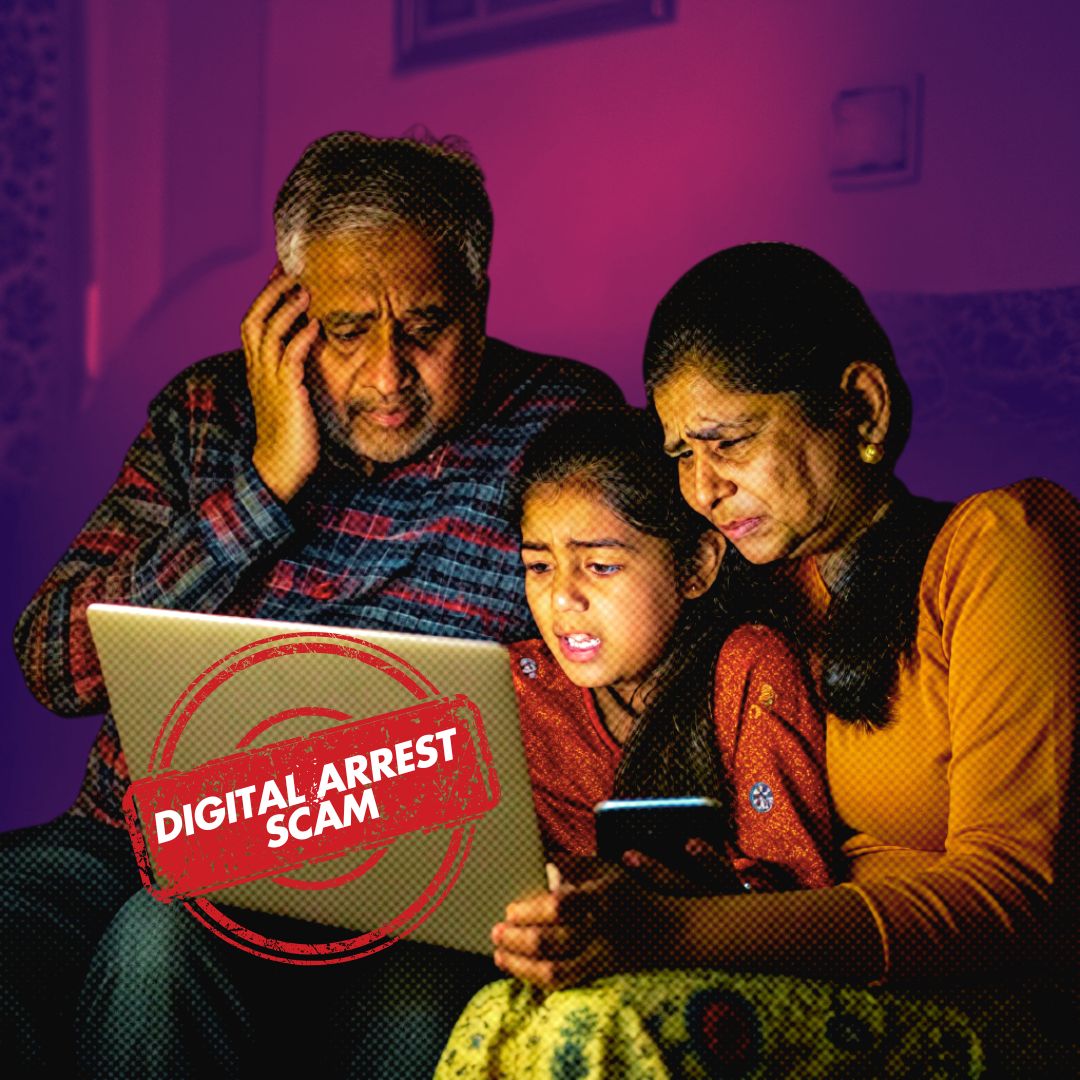A Noida family has been left reeling after losing over ₹1 crore in a sophisticated “digital arrest” scam, a new and alarming form of cyber fraud. For five days, the family was held under “digital arrest” by scammers posing as government and law enforcement officials, including individuals impersonating CBI and customs officers. Using video calls and coercive tactics, the fraudsters fabricated accusations of involvement with international drug parcels, extorting the family out of their savings.
While police have registered a case and are investigating, this incident serves as a stark reminder of the growing threat of cybercrime and the urgent need for heightened public awareness. The government’s I4C portal offers resources to check for known scamsters.
The Initial Contact: A Web of Deceit Begins
The nightmare unfolded on February 1 when Chandrabhan Paliwal received an unexpected call claiming his SIM card was about to be blocked due to alleged misuse. “At first, I dismissed it as just another nuisance call,” recalls Paliwal, “but then the tone changed, and the caller became increasingly aggressive.” Soon after, a second individual, posing as a high-ranking IPS officer, contacted Paliwal, accusing him of serious offenses, including extortion and money laundering.
The scammer claimed that a staggering 24 criminal cases were registered against him. The fraudsters then extended their web of deceit to Paliwal’s wife and daughter, subjecting them to the same terrifying threats of immediate arrest unless they complied with their demands.
“Digital Arrest”: A Chilling Tactic of Coercion and Control
Deputy Commissioner of Police (Cyber Crime), Preeti Yadav, explained the mechanics of the “digital arrest” scam: “The fraudsters create an environment of fear and intimidation by impersonating officials from reputable agencies like the CBI and customs.
They use video calls to appear legitimate and claim the victims are implicated in serious crimes, such as being linked to fake international parcels containing banned drugs. This psychological manipulation is designed to break down the victims’ resistance and coerce them into making payments.” Over five agonizing days, the Paliwal family, paralyzed by fear and believing they had no other option, transferred a total of ₹1.1 crore to the fraudsters.
Expert Insight: The Psychology Behind “Digital Arrest”
Cyber law expert Pawan Duggal sheds light on the psychological tactics employed in these scams: ” ‘Digital arrest’ is the phenomenon of trying to put somebody in a sense of fear and panic and thereafter going ahead and extorting money from the said person. The scammers prey on the victims’ lack of knowledge about legal procedures and their inherent trust in authority figures.
By creating a sense of urgency and imminent danger, they bypass the victims’ critical thinking and exploit their fear of imprisonment.” Duggal emphasizes the importance of public awareness campaigns to educate individuals about these deceptive tactics.
Protect Yourself: Expert Advice and Government Initiatives to Combat Cyber Fraud
- Stay Calm and Verify: Special Inspector General of Police, Yashasvi Yadav, clarifies that “Digital arrests” do not exist under Indian law. If you receive a call claiming you are under “digital arrest,” remain calm and verify the caller’s identity through official channels. Legitimate law enforcement agencies do not demand payments over the phone.
- Report and Check Suspects: Use the government’s I4C database on the National Cyber Crime Reporting Portal to report suspicious activity and check for known scamsters. This database helps track reported incidents and identify patterns, aiding law enforcement in their investigations.
- Immediate Action: If you realize you’ve been scammed, contact the financial helpline 1930 within 15-20 minutes to freeze any transactions. File a complaint with your local cybercrime cell and on the National Cyber Crime Reporting Portal immediately. Early reporting significantly increases the chances of recovering lost funds.
- Be Skeptical of Unsolicited Contact: Law enforcement rarely contacts individuals out of the blue via phone or email. Government agencies typically communicate through official channels and written correspondence.
- Government Awareness Campaigns: PM Narendra Modi has raised awareness about these scams, emphasizing that legitimate agencies don’t conduct inquiries via phone or video calls. CERT-In has also issued advisories, providing detailed information about common scam tactics and preventative measures.
The Logical Indian’s Perspective
The devastating experience of the Paliwal family serves as a powerful reminder of the ever-evolving landscape of cybercrime and the urgent need for proactive consumer protection. “Digital arrest” scams represent a particularly insidious form of fraud, exploiting fear and manipulating trust to devastating effect. It is imperative that law enforcement agencies not only pursue and prosecute these criminals but also work collaboratively with consumer protection organizations, cybersecurity experts, and the media to educate the public about these threats.
We, as individuals, must cultivate a culture of skepticism and vigilance, questioning unsolicited communications, verifying information before acting, and sharing our knowledge with friends, family, and neighbours. How can we collectively build a more resilient and informed community, where individuals are empowered to recognize and resist these scams, creating a safer digital environment for all?












